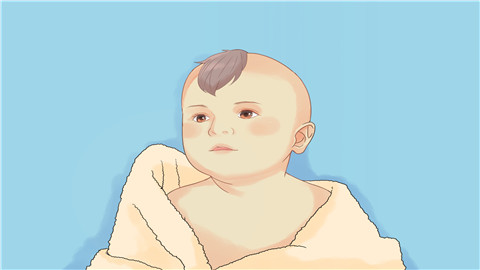How to manage high bilirubin levels in newborn jaundice
Generally, high neonatal jaundice may be caused by excessive bilirubin production in newborns, weak bilirubin metabolism capacity of the newborn liver, breast milk jaundice, neonatal hemolytic disease, biliary atresia, and other reasons. It is recommended to seek timely medical attention, identify the cause, and improve the condition under a doctor's guidance through general care, phototherapy, medication, or surgical treatment. A detailed analysis is as follows:

1. Excessive bilirubin production in newborns: Newborns have a large number of red blood cells with a short lifespan. After red blood cell destruction, a large amount of bilirubin is produced, exceeding the body's metabolic capacity, resulting in high jaundice levels, which often appears 2-3 days after birth. Strengthen feeding, breastfeed 8-12 times daily, and promote defecation and urination through sufficient milk intake to help eliminate bilirubin through feces and urine.
2. Weak bilirubin metabolism capacity of the newborn liver: The enzyme system in the newborn's liver is not yet mature, resulting in insufficient capacity to process bilirubin, which leads to bilirubin accumulation and jaundice. Continue regular feeding and ensure adequate milk intake to provide energy support for liver metabolism; doctors will periodically monitor bilirubin levels in newborns. In most cases, no special medication is required, and jaundice will gradually subside as liver function matures.
3. Breast milk jaundice: Certain components in breast milk may affect bilirubin metabolism, causing prolonged jaundice. The newborn generally remains in good spirits and feeds normally. Stop breastfeeding for 1-2 days and switch to formula feeding to observe whether bilirubin levels decrease. Gradually resume breastfeeding after bilirubin levels drop; monitor bilirubin daily during this period to prevent excessively high bilirubin levels.
4. Neonatal hemolytic disease: Maternal-fetal blood type incompatibility causes extensive destruction of red blood cells in the newborn, leading to a rapid increase in bilirubin levels, often accompanied by anemia and poor mental status. Phototherapy should be conducted under medical guidance, using specific wavelength light to promote bilirubin breakdown; follow medical advice to use medications such as human albumin injection, phenobarbital tablets, and immunoglobulin injection to reduce the risk of bilirubin-induced encephalopathy.
5. Biliary atresia: Abnormal development of the newborn's bile ducts prevents normal bile excretion, causing bilirubin to flow back into the bloodstream, progressively worsening jaundice and gradually lightening stool color. Early hepatic portoenterostomy is required to reconstruct the bile drainage pathway through surgery, promote bile excretion, and improve liver function.
In daily care, closely monitor the newborn's mental status, feeding intake, and stool color. Avoid excessive swaddling that may hinder heat dissipation. Pay attention to feeding posture to ensure effective sucking by the newborn. Through adequate feeding and scientific care, assist in jaundice resolution and maintain the newborn's health.




